Collaborations Find out how to collaborate with RWSN
Myths of Rural Water Supply Learning from past failures, building on successes
Project start: 2010 • Project finished:
Collaborators: UNICEF, Skat, WaterAid, Water & Sanitation Program, African Development Bank, Swiss Development Cooperation
Funder:
Summary
Ensuring that rural dwellers around the world do not have to walk for hours to collect sufficient and safe drinking water is a huge challenge. In 2010, RWSN published "Myths of the Rural Water Supply Sector" which raises issues for those of us who are involved in trying to improve rural water supplies, whether as donor, Government or NGO; program manager or practitioner. It takes a hard look at our limited achievements, points to areas where our approaches need to be radically improved and sets some challenges.'Smart Handpumps' Handpumps can be better - who is leading the way?
Project start: • Project finished:
Collaborators: Several
Funder: Several
Summary
Drilling a borehole and installing a handpump is a common way to improve access to water for rural (and urban) people in many parts of the world. However, the failure of these water points is shockingly high, a third in many African and Asian countries and often much higher.New communications technology is opening up the possibilities for 'Smart Handpumps' - handpumps that actively record how and when they are used and transmits that data to an organisation who can use that information to (a) mobilise targeted maintenance and repairs; (b) identity priority areas for future improvements and investments; (c) to understand the user needs better, and main other reasons that shift rural water supply away from 'fire-and-forget' projects and towards water services that last and that reach everyone.
Technology Applicability Framework (TAF) & Technology Introduction Process (TIP) WASHtechnologies.net
Project start: 2011 • Project finished:
Collaborators: Skat Foundation, WaterAid, GIZ. The WASHTech consortium consisted of IRC WASH, WaterAid, Cranfield University, Skat Foundation, WSA, TREND, KNUST and NETWAS
Funder: Currently un-funded
Summary
The TAF is a tried-and-tested way of helping organisations improve their understanding of whether a technology that is designed to tackle a Water, Sanitation and Hygiene (WASH) problem will work in a particular context. This improved understanding can be used to support decisions on:1. Whether or not to invest or support the introduction of Technology X in Context Y
2. Whether or not to continue to invest, support or approve the introduction of Technology X in Context Y
3. Is Technology X ready to scale-up? And what are context-sensitive factors that may play a major role in the success or failure of widespread promotion and uptake?
Although the TAF was developed for WASH technologies, it can be used for any type of technology or product, and has been adapted by others for renewable energy technologies.
RWSN Publications - now on Practical Answers RWSN Publications - maintenant sur Practical Answers
Project start: 2018 • Project finished:
Collaborators: RWSN, Practical Action
Funder: SDC
Summary
To help rural water professionals get access to the inform they need, RWSN has teamed up with Practical Action to make some of our leading publications available on the Practical Answers website and mobile App.Let is know if there are any particular resources or publications that you would like to have on this platform.
Pour aider les professionnels de l’eau en milieu rural à accéder aux informations dont ils ont besoin, le RWSN s’est associé à Practical Action pour rendre certaines de nos principales publications disponibles sur le site Web de Practical Answers et l’application mobile.
Indiquez s'il existe des ressources ou des publications particulières que vous aimeriez avoir sur cette plate-forme.
Uptime: Delivering Reliability for 100 Million People by 2030 Temps de fonctionnement : Garantir la fiabilité à 100 millions de personnes d'ici 2030
Project start: • Project finished:
Collaborators: FundiFix, Water for Good, Water Mission, UDUMA, Whave, Oxford University
Funder: GIZ, Osprey Foundation
Summary
Uptime is a global consortium working to deliver drinking water services to millions of rural people through long-term, performance-based funding to achieve Sustainable Development Goal 6.1.New Book: Self-supply - Filling the gaps in public water supply provision
Project start: 2021 • Project finished:
Collaborators: Dr Sally Sutton (Ind), Dr John Butterworth (IRC), Practical Action Publishing
Funder: IRC, SWL Consultants
Women’s empowerment through rural water supply / Autonomisation des femmes par le biais d’activités d'approvisionnement en eau en milieu rural A practical guide / Un guide pratique / Una guía práctica
Project start: 2020 • Project finished:
Collaborators: RWSN Members from the Leave No-one Behind Community
Funder: SDC
Summary
This practical guide is the result of a consultation and co-creation process with members of the Rural Water Supply Network (RWSN). Engineers and gender experts have come together to overcome jargon barriers from their respective disciplines. This guide aims to pro-vide water specialists with the language and knowledge on how best to work with gender experts to build more transformative activities.Ce guide pratique est le fruit d'un processus de concertation et de cocréation avec les membres du réseau d’approvisionnement en eau en milieu rural (Rural Water Supply Network, RWSN). Des ingénieurs et des spécialistes des questions de genre se sont réunis pour faire tomber les barrières du jargon de leurs disciplines respectives. Ce guide a pour but d'apporter aux spécialistes de l'eau le langage et les connaissances sur la meilleure façon de travailler avec des spécialistes des questions de genre pour élaborer des activités plus transformatrices.
Esta guía práctica es el resultado de un proceso de consulta y de co-creación con miembros de la Red Rural de Abastecimiento de Agua (RWSN). Ingenieros y expertos en género se han unido para superar las barreras que supone la jerga de sus respectivas disciplinas. Esta guía tiene como objetivo proporcionar a los especialistas en agua el lenguaje y el conocimiento sobre la mejor manera de trabajar con expertos en género para construir actividades más transformadoras.
Technological Innovations for Rural Water Supply in Low-resource Settings CHALLENGES OF RURAL WATER SUPPLY
Project start: • Project finished:
Collaborators: Aquaya Institute, Aguaconsult, ATREE, KNUST, RWSN, Skat Foundation, Safe Water Network, Water Mission
Funder: USAID
Summary
Globally, the Sustainable Development Goals (2015–2030) are driving efforts to increase water service levels, while ensuring that services are affordable and no vulnerable population is left behind. In concert with global development goals, the United States Agency for International Development (USAID) Rural Evidence and Learning for Water (REAL-Water; 2021–2026) program focuses on identifying ways to expand water access and safety in rural areas of low- and middle-income countries. Rural areas pose special challenges for water supply, as homes may be too few or too dispersed to justify the cost of installing underground pipes from a high-quality water supply source or a centralized drinking water treatment facility. As of 2020, the majority of people lacking even basic water services (i.e., water from a protected source requiring no more than 30 minutes to collect) lived in rural areas.Financial Innovations for Rural Water Supply in Low-Resource Settings
Project start: • Project finished:
Collaborators: REAL-Water consortium members: The Aquaya Institute, Aguaconsult, the Kwame Nkrumah University of Science and Technology (KNUST), the Skat Foundation’s Rural Water Supply Network (RWSN), Safe Water Network, and Water Mission.
Funder: USAID
Summary
Millions of people in rural areas of low- and middle-income countries still lack access to basic water services. In fact, as of 2020, the majority of people without basic water services lived in rural areas. The United States Agency for International Development (USAID) Rural Evidence and Learning for Water (REAL-Water) program is working to address this issue by identifying ways to expand water access and safety in rural areas.One of the challenges of providing rural water supply financing is that the populations are smaller, more dispersed, and poorer than their urban counterparts. This may reduce opportunities for economies of scale and complete cost recovery. To overcome these challenges, the REAL-Water program is focusing on identifying innovative and promising financing or funding mechanisms that can be used in small villages and dispersed settlements.
WHO’s updated Guidelines for small drinking-water supplies and associated sanitary inspection tools Launch: 15 February
Project start: 2024 • Project finished:
Collaborators: WHO, RWSN
Funder: WHO
Summary
#Webinar alert! World Health Organization and RWSN - Rural Water Supply Network will hold a global webinar on 15 February to launch WHO's updated Guidelines for drinking-water quality: small water supplies, and the associated Sanitary inspection packages – a supporting tool for the Guidelines for drinking water quality: small water supplies.These publications build on over 60 years of guidance by WHO on drinking-water quality and safety, and together update and supersede WHO’s 1997 guidance addressing the surveillance and control of community supplies. The new publications provide practical guidance for progressive improvements towards safe and sustainable drinking-water services for people served by the full diversity of small water supplies.
In this session, participants will gain awareness of key features of the Guidelines and tools, exchange with experts and practitioners on implementing the recommendations and guidance, and gain insights into upcoming efforts to further support implementation of the guidance.
Writing Course for WASH Professionals Skat, WaterAid, SHARE, Waterlines Journal
Project start: 2012 • Project finished: -
Collaborators: RWSN, Skat, WaterAid, SHARE, Waterlines Journal
Funder: SHARE
Summary
The ChallengeOver 2.5 billion have no access to improved sanitation and 780 million people lack access to improved sources of drinking water, according to the WHO/UNICEF Joint Monitoring Programme (2012). The numbers are staggering. The suffering is real. The challenge to overcome is immense. Success can only come through a combination of action and communication. Both are critical.
We have a vision where Water, Sanitation and Hy-giene (WASH) professionals are regularly sharing and learning – at all levels from districts to global networks. As a sector, we also need to reach out and communicate with wide range of audiences: politicians, policymakers, companies, water users, and the public in all countries.
We often have the content: experiences, data, pro-jects, methodologies and stories of success and failure. What we are often not great at is explaining ourselves to others in a way that leads to positive action.
We want to change that.
Safe Water: monitoring, data and decisions Une eau potable gérée en toute sécurité: surveillance, données, décisions
Project start: 2019 • Project finished: -
Collaborators: University of North Carolina, RWSN
Funder:
Summary
New partnership between RWSN and The Water Institute of UNCNouveau partenariat entre RWSN et le Water Institute à UNC Chapel Hill
We are excited to announce a new partnership between RWSN and The Water Institute at UNC Chapel Hill. This partnership will leverage the RWSN platform and The Water Institute’s expertise in water quality and management to bring up-to-date evidence and methods to the members of the network. As a new Topic Leader in Mapping and Monitoring,
The Water Institute aims to bring evidence and practice closer by facilitating lively discussion and producing practical guidance on Safely Managed Water. The new partnership will begin in 2019, so look out for The Water Institute’s new weekly Mapping Monday posts in the RWSN Mapping and Monitoring online community in the New Year!
Nous sommes ravis d'annoncer un nouveau partenariat entre RWSN et le Water Institute à UNC Chapel Hill. Ce partenariat s’appuiera sur la plateforme RWSN et sur l’expertise du Water Institute en matière de qualité et de gestion de l’eau pour apporter des données et des méthodes scientifiques de pointe aux membres du réseau. En tant que nouveau responsable du Thème cartographie et de surveillance, The Water Institute a pour objectif de rapprocher la science et les pratique en facilitant une discussion animée et en produisant des conseils pratiques sur une eau gérée de manière sûre. Le nouveau partenariat débutera en 2019, alors ne manquez pas les nouveaux articles hebdomadaires intitulés Mapping Monday du Water Institute dans la communauté en ligne RWSN dédiée à la cartographie et au suivi !
Professionalising Manual Drilling UNICEF, Skat Foundation
Project start: 2013 • Project finished: 2014
Collaborators: UNICEF, Skat Foundation
Funder: UNICEF, Skat Foundation
Summary
Building and supporting local enterprises to develop markets and undertake manual drilling in a professional manner.Sustainability Assessment of Rural Water Service Delivery Models Findings of a Multi-Country Review
Project start: 2016 • Project finished: 2017
Collaborators: The World Bank, Aguaconsult, IRC
Funder: The World Bank
Summary
Failure by governments and development partners to ensure sustained access to basic water supplies in rural areas is, to a large extent, the result of inadequate investment to deliver infrastructure where needed. It is also the result of a failure to ensure that infrastructure, once in place, continues to effectively provide the expected services over time.Impressive gains from the Millennium Development Goal (MDG) era remain fragile and at risk, with various empirical studies indicating that 30 percent to 40 percent of rural water infrastructure is not functioning or functions below expected service levels (RWSN 2010).
UPGro – African Groundwater 2020 Final report from Unlocking the Potential for Groundwater for the Poor
Project start: 2013 • Project finished: 2020
Collaborators: Skat Foundation, Richard Carter & Associates + research teams from across Africa and Europe.
Funder: UK's Department for International Development (DFID), Natural Environment Research Council (NERC) and in principle the Economic and Social Research Council (ESRC)
Summary
Unlocking the Potential of Groundwater for the Poor (UPGro), was a seven-year international research programme (2013-2020) which was jointly funded by UK’s Department for International Development (DFID), Natural Environment Research Council (NERC) and the Economic and Social Research Council (ESRC).Nearly 200 of the world’s best researchers from more than 50 organisations across Africa and Europe were focused on improving the evidence base around groundwater availability and management in Sub-Saharan Africa. The goal has been to ensure that the hidden wealth of Africa’s aquifers benefit all citizens and the poorest in particular. UPGro projects have been interdisciplinary, linking the social and natural sciences to address this challenge
Challenges of Water Well Drillers & Water Well Drillers Associations Case Studies of Six Countries Angola, Burkina Faso, Mozambique, Nigeria, Uganda and United States of America
Project start: 2018 • Project finished: 2020
Collaborators: Skat Foundation
Funder: Skat Foundation
Summary
Groundwater has been identified as the key to sustainable development and forms the foundation for achieving the Sustainable Development Goals (SDGs) (UN-Water, 2018). Although not properly recognised in the SDG framework, its importance is seen in its provisioning and regulating functions (e.g. maintaining river base flow, preventing land subsidence and seawater intrusion), and acting as a solution for climate change adaptation. Groundwater accounts for over 97% of the world’s freshwater resources, and it is readily available.Groundwater is diminishing in some regions, and water quality deterioration is increasing (UN-Water, 2018). With no incentives to save groundwater, the impacts of unsustainable use are slow and multiple (Villholth, 2018). In order to sustainably manage groundwater resources, intervention is needed at different levels and in accordance with local contexts.
Drillers are in direct contact with groundwater resources and thus understand key issues on the ground. If well organised, such as in the form of an association, and empowered with knowledge, drillers can advocate for and influence policies at state and national levels, and even lobby the governments to bring groundwater issues to the forefront.
Groundwater: Making the Invisible Visible World Water Day 2022
Project start: 2022 • Project finished: 2020
Collaborators: UN-Water
Funder:
Summary
Groundwater is invisible, but its impact is visible everywhere. Out of sight, under our feet, groundwater is a hidden treasure that enriches our lives. Almost all of the liquid freshwater in the world is groundwater. For rural areas it is often the safest, most reliable water resources.As climate change gets worse, groundwater will become more and more critical. We need to work together to sustainably manage this precious resource. Groundwater may be out of sight, but it must not be out of mind.
REACH: Improving water security for the poor A global research programme to improve water security for millions of poor people in Asia and Africa.
Project start: 2015 • Project finished: 2022
Collaborators: Oxford University, UNICEF, Water and Land Resource Centre, Bangladesh University of Engineering and Technology, icddr,b, University of Dhaka, University of Nairobi, IFPRI, IWA, RWSN, IRC.
Funder: DFID
Summary
REACH is a seven-year, global programme of research (2015-2022) led by Oxford University and funded by the UK Department for International Development (DFID) that aims to improve water security for over 5 million poor people by 2022.As a Research into Action partner, the Rural Water Supply Network will support the design and implementation of the programme’s communications strategy, supporting the uptake of the research findings and ensuring that they translate into positive policy and practice outcomes.
Stop the Rot! A project in action research and catalysing action to ensure the quality of water lifting technologies for drinking water in sub–Saharan Africa.
Project start: 2021 • Project finished: 2022
Collaborators: Ask for Water GmbH, Skat Foundation
Funder: Waterloo Foundation
Summary
The Challenge1) Premature corrosion and failure of water supply hardware, such as handpumps, is widespread across Sub-Saharan Africa, but evidence is limited and largely anecdotal.
2) For tens of millions of Africans who depend on handpumps for their daily water needs, these failures threaten their health and livelihoods.
3) Despite millions of dollars wasted on poor quality hardware, there seems to be a lack of interest among key international donors and other development partners that fund rural water supply services to engage in the problem of variable handpump quality.
This new RWSN initiative by Skat Foundation and Ask for Water GmbH strives to find ways in which key stakeholders can ensure that handpump technologies and spare parts that are installed for drinking water in sub-Saharan Africa are consistently of high quality and can last
RWSN Early Webinar Series 2022 Série de webinaires RWSN 2022
Project start: 2022 • Project finished: 2022
Collaborators:
Funder: SDC, Skat Foundation, Design Outreach, Waterloo Foundation and contributions from Theme Leaders and presenters
Summary
Greetings /Bonjour (message en français plus bas ),Mark your calendars! RWSN is delighted to announce its 2022 early series of 6 webinars (on-line seminars), running from April 5th until June 28th, in Englis and/or French
5 Apr - Policy influence for ultra-deep reaching hand pumps (Sponsored by Design Outreach)
26 Apr - Stop the Rot: Taking action to prevent the use of poor quality handpumps (Sponsored by Waterloo Foundation)
31 May - Self-supply hotspots: the case of Bangladesh
7 Jun - Pastoralist water management and rights
21 Jun - Embedding solar pumping best practices
28 Jun - Service delivery models for rural water supply
Series Sponsor: Swiss Agency for Development and Cooperation (SDC)
UN Groundwater Summit 2022 7-8 December 2022 | Pre-Summit events: 6 December 2022 UNESCO HQ in Paris, France
Project start: 2022 • Project finished: 2022
Collaborators: UN-Water
Funder:
Summary
The UN-Water Summit on Groundwater will be the culminating event of the 2022 campaign “Groundwater: making the invisible visible”, implemented by the dedicated UN-Water Task Force, co-coordinated by UNESCO and the International Groundwater Resources Assessment Centre (IGRAC), on behalf of UN-Water. The main messages from the Summit will be conveyed to the United Nations 2023 Water Conference.Call to water services providers to support young professionals' careers
Project start: 2023 • Project finished: 2023
Collaborators: Aquafed
Funder: Netherlands government through the Valuing Water Initiative
RWSN Webinar early series, May- Jun 2023 RWSN Webinar early series, May- Jun 2023
Project start: 2023 • Project finished: 2023
Collaborators:
Funder: Skat Foundation (Sufosec Alliance), the Waterloo Foundation
Summary
Source of presentations and recordings of the Early 2023 RWSN Webinar seriesThis year we will host our first webinar series of 4 webinar between 30 May and 27 June. Please see the titles and dates of the webinars below
• 30 May – Opportunities and Challenges of Government-led SDG 6.1 monitoring in Fragile and Conflict-Affected States (Leave no one behind and Data for Action Themes)
• 6 June – Stop the rot - Handpump Upgrade…to Be, or Not to Be? (Design Outreach/Waterloo Foundation/Sustainable Groundwater Development Theme)
• 20 June – Water for food, for drinking, and for rural development - examples at scale (Self Supply Theme)
• 27 June – Customary water tenure 1 (MUS Theme and IYRP group)
Links for registration below
**********************
Source des présentations et des enregistrements de la série de webinaires RWSN Early 2023.
Cette année, nous organiserons notre première série de 4 webinaires entre le 30 mai et le 27 juin. Veuillez consulter les titres et les dates des webinaires ci-dessous
- 30 mai - Opportunités et défis du suivi de l'ODD 6.1 mené par le gouvernement dans les États fragiles et touchés par un conflit (ne laisser personne de côté et thèmes des données pour l'action)
- 6 juin - Halte aux dégradation - Amélioration des pompes à main... à faire ou à ne pas faire ? (Design Outreach/Waterloo Foundation/Thème du développement durable des eaux souterraines)
- 20 juin - L'eau pour l'alimentation, la boisson et le développement rural - exemples à l'échelle (thème de l'auto-approvisionnement)
- 27 juin - Tenure coutumière de l'eau 1 (Thème MUS et groupe IYRP)
Liens pour s'inscrire ci-dessous
SIRWASH: Sustainable and Innovative Rural Water, Sanitation and Hygiene Servicios sostenibles e innovadores de Agua, Saneamiento e Higiene en zonas rurales – SIRWASH
Project start: 2020 • Project finished: 2024
Collaborators: IDB, SuSanA
Funder: SDC
Summary
The general objective of the SIRWASH programme is to improve enabling policy, innovation and knowledge exchange environments and to foster the necessary capacities to deliver quality WASH services to rural communities with a particular focus on vulnerable and disadvantaged people.In 2023, RWSN is collaborating with the Inter American Development Bank (IDB) and the Sustainable Sanitation Alliance (SuSanA) to share good practices an experiences within Latin America and the Caribbean (LAC) and encourage South-South exchange on rural WASH with practitioners in Africa and Asia.
Join us for the #SIRWASH Webinar 1: Regional and National Monitoring of Rural WASH
Mark your calendars for October 4, 2023, at 16:00 (CEST) / 10:00 (EST) / 14:00 (GMT)
This is the first event of the webinar series of the SIRWASH Programme (Sustainable and Innovative Rural Water, Sanitation and Hygiene)
The event will be multilingual, with simultaneous translation into EN, FR, PT, and SP.
We will be joined by an esteemed lineup of partners and organizations:
-Inter-American Development Bank with the support of Swiss Agency for Development and Cooperation
-Asian Development Bank (ADB)
-African Development Bank Group
-Water For People
-RWSN - Rural Water Supply Network / Skat Foundation
Mentoring programme / Programme de mentorat / Programa de tutoría Mentor and mentee registration is now open! L'inscription des mentors et des mentorés est maintenant ouverte ! Ya está abierto el plazo de inscripción para mentores y alumnos.
Project start: 2024 • Project finished: 2024
Collaborators: WASH Agenda for Change, Women in WASH Mentoring Program
Funder: Global Water Center, CARE
Summary
Join the 2024 RWSN Mentoring programme in collaboration with Agenda for Change and Global Water Center - and seize the opportunity to learn from experienced professionals in the water, sanitation, and hygiene (WASH) sectors.Why Should You Apply? We have an exceptional lineup of mentors eager to guide you on your journey. This is your chance to tell us why you're excited about the water sector and what you're passionate about achieving. Remember, competition is fierce, so the more you share about yourself, your goals, and your enthusiasm for the program, the better your chances of success! What Do You Want to Work On? Whether it is advancing your career, sharpening your skills, or making a difference in your community, our mentoring program is tailored to your needs. Share your aspirations with us, and let's work together to make them a reality. The programme is available in English, Spanish, and French.
///
Rejoignez le programme de mentorat 2024 RWSN en collaboration avec Agenda for Change et Global Water Center - et saisissez l'opportunité d'apprendre de professionnels expérimentés dans les secteurs de l'eau, de l'assainissement et de l'hygiène (WASH).
Pourquoi postuler ? Nous disposons d'un groupe exceptionnel de mentors désireux de vous guider dans votre parcours. C'est l'occasion de nous dire pourquoi le secteur de l'eau vous passionne et ce que vous souhaitez réaliser. N'oubliez pas que la concurrence est féroce. Plus vous en direz sur vous, sur vos objectifs et sur votre enthousiasme pour le programme, plus vous aurez de chances de réussir ! Sur quoi voulez-vous travailler ? Qu'il s'agisse de faire progresser votre carrière, d'affiner vos compétences ou de faire une différence dans votre communauté, notre programme de mentorat est adapté à vos besoins. Faites-nous part de vos aspirations et travaillons ensemble pour les concrétiser. Le programme est disponible en anglais, en espagnol et en français.
///
Únase al programa 2024 RWSN Mentoring, en colaboración con Agenda for Change y Global Water Center, y aproveche la oportunidad de aprender de profesionales experimentados en los sectores del agua, el saneamiento y la higiene (WASH).
¿Por qué deberías solicitarlo? Tenemos un grupo excepcional de mentores deseosos de guiarte en tu viaje. Esta es tu oportunidad para contarnos por qué te entusiasma el sector del agua y qué te apasiona conseguir. Recuerda que la competencia es feroz, así que cuanto más compartas sobre ti, tus objetivos y tu entusiasmo por el programa, mayores serán tus posibilidades de éxito. ¿En qué quiere trabajar? Tanto si se trata de avanzar en su carrera profesional, perfeccionar sus habilidades o marcar la diferencia en su comunidad, nuestro programa de mentores se adapta a sus necesidades. Comparte con nosotros tus aspiraciones y trabajemos juntos para hacerlas realidad. El programa está disponible en inglés, español y francés.



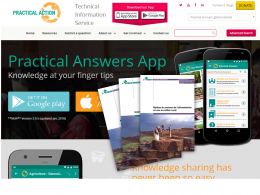
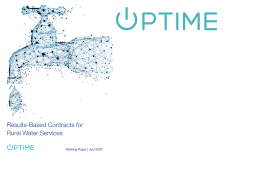
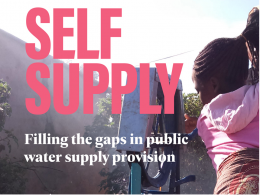
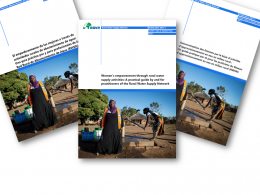
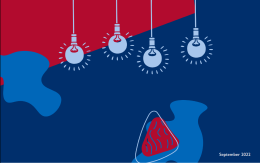
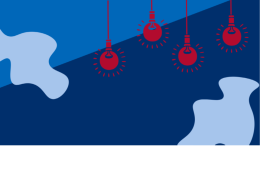
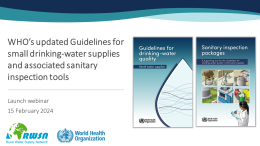
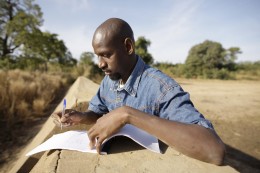
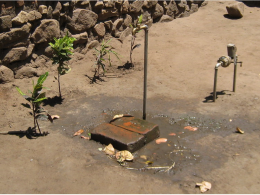
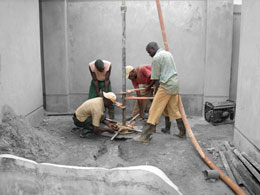
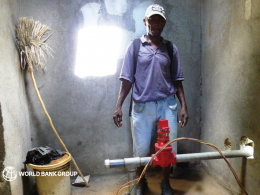
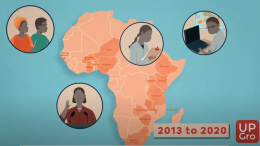
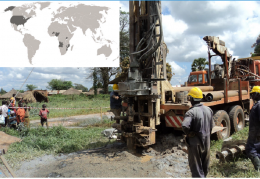
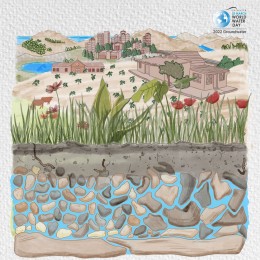
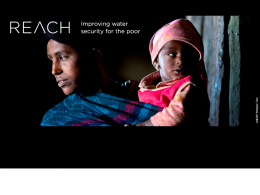
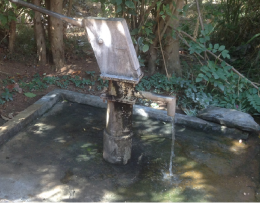
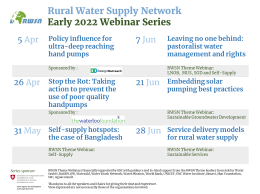
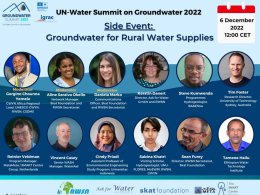
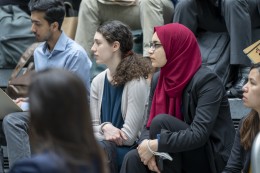
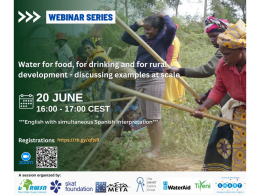
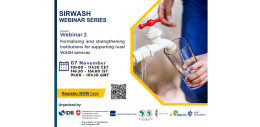
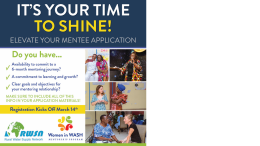

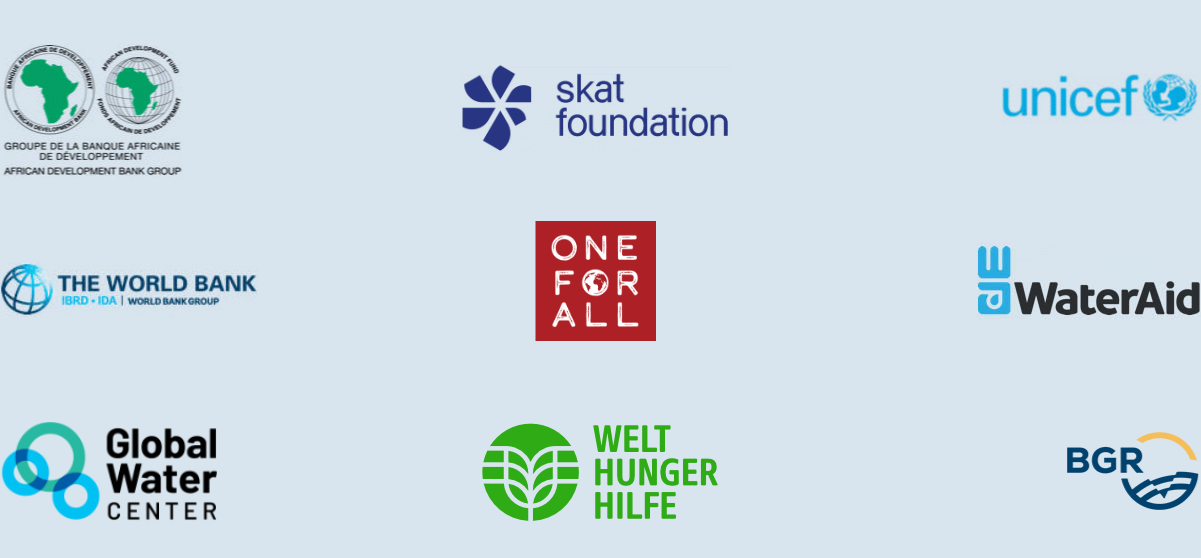





 Google Übersetzer
Google Übersetzer